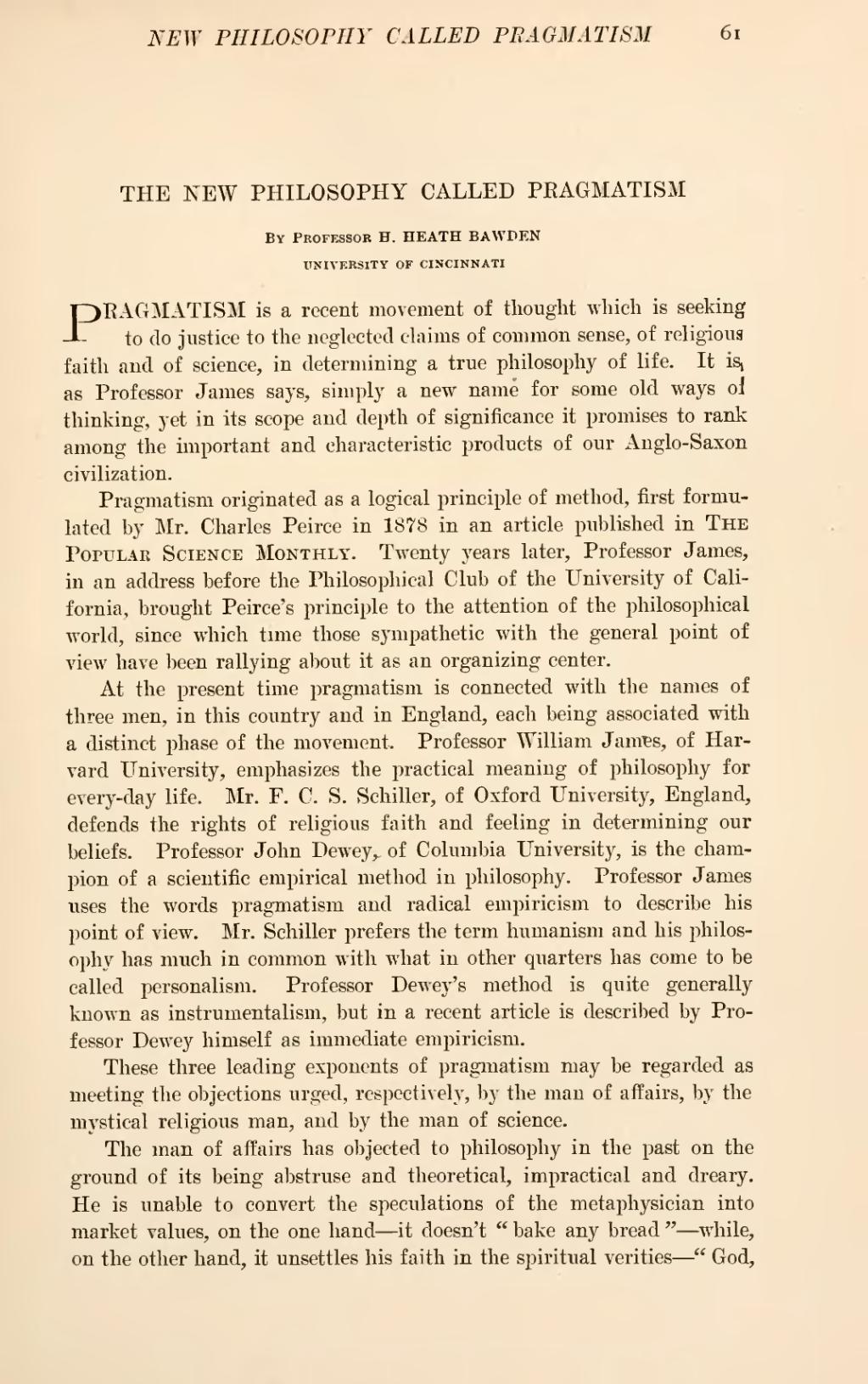| THE NEW PHILOSOPHY CALLED PRAGMATISM |
By Professor H. HEATH BAWDEN
UNIVERSITY OF CINCINNATI
PRAGMATISM is a recent movement of thought which is seeking to do justice to the neglected claims of common sense, of religious faith and of science, in determining a true philosophy of life. It is as Professor James says, simply a new name for some old ways of thinking, yet in its scope and depth of significance it promises to rank among the important and characteristic products of our Anglo-Saxon civilization.
Pragmatism originated as a logical principle of method, first formulated by Mr. Charles Peirce in 1878 in an article published in The Popular Science Monthly. Twenty years later, Professor James, in an address before the Philosophical Club of the University of California, brought Peirce's principle to the attention of the philosophical world, since which time those sympathetic with the general point of view have been rallying about it as an organizing center.
At the present time pragmatism is connected with the names of three men, in this country and in England, each being associated with a distinct phase of the movement. Professor William Jantes, of Harvard University, emphasizes the practical meaning of philosophy for every-day life. Mr. F. C. S. Schiller, of Oxford University, England, defends the rights of religious faith and feeling in determining our beliefs. Professor John Dewey, of Columbia University, is the champion of a scientific empirical method in philosophy. Professor James uses the words pragmatism and radical empiricism to describe his point of view. Mr. Schiller prefers the term humanism and his philosophy has much in common with what in other quarters has come to be called personalism. Professor Dewey's method is quite generally known as instrumentalism, but in a recent article is described by Professor Dewey himself as immediate empiricism.
These three leading exponents of pragmatism may be regarded as meeting the objections urged, respectively, by the man of affairs, by the mystical religious man, and by the man of science.
The man of affairs has objected to philosophy in the past on the ground of its being abstruse and theoretical, impractical and dreary. He is unable to convert the speculations of the metaphysician into market values, on the one hand—it doesn't "bake any bread"—while, on the other hand, it unsettles his faith in the spiritual verities—"God,

